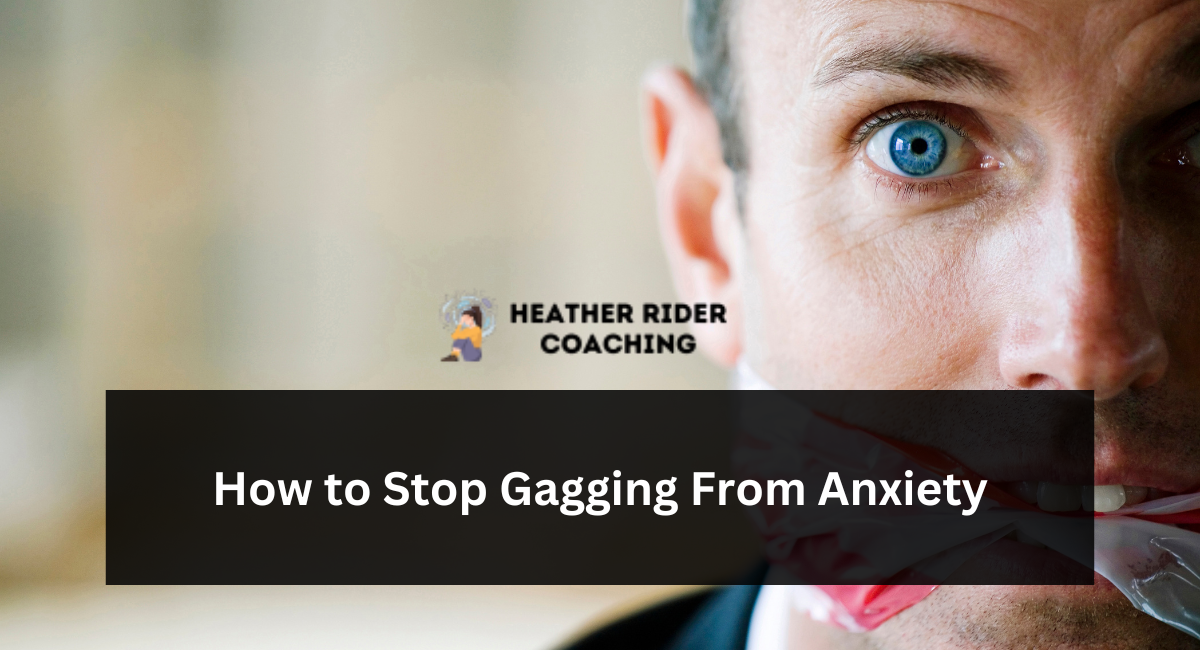Gagging or feeling like one is choking can be debilitating for some individuals. This sensation may occur occasionally, frequently, or all the time.
The good news is that this symptom can be overcome. By understanding its roots and triggers, as well as practicing relaxation techniques, individuals can begin managing their gagging symptoms more effectively.
Take a Deep Breath
Deep breathing can help soothe your gag reflex and bring peace of mind; deep breathing also has the added advantage of relaxing both body and mind. Deep breathing is an effective natural remedy to ease tension when feeling overwhelmed or anxious.
Swallowing is an automatic reflex occurring without conscious thought during normal life. But during an anxiety attack, swallowing becomes more aware, often giving rise to sensations as though your throat were filled with food or liquid and that you are being choked – an experience that can be very distressful.
Breathe Through Your Nose
Many individuals living with extreme anxiety often report feeling as if they’re constantly being choked, whether this feeling comes and goes occasionally or persists throughout their day.
Take deep, controlled breaths through the nose to relax the body and lower anxiety levels while attenuating any gagging sensation by allowing muscles to work efficiently. If it persists, see your physician as they may provide other strategies for managing this symptom.
Take a Throat Numbing Spray
Many individuals find that using a throat numbing spray helps them control the gag reflex during anxiety attacks, especially if visiting the dentist or other medical procedures where this reflex may be activated. It may be especially helpful in stopping any potential gag reflex triggers like going for dental work or medical procedures where the gag reflex may be activated.
Psychologically, the sensation of gagging may stem from past experiences of near-drowning or other choking situations, or specific medications could even trigger it.
Seeing a healthcare provider is essential if you are suffering from anxiety-inducing symptoms to manage them effectively and live a less anxious lifestyle.
Sip on Water
If you are experiencing persistent or severe anxiety-related dry heaving, it is advisable to see your physician for proper diagnosis and guidance. Medication, allergies, or digestive issues could all contribute to these symptoms.
Gagging symptoms may be temporarily relieved with acupuncture, local anesthetic injections, or desensitization treatments; however, they will likely recur unless anxiety issues are addressed, and healthier ways are found for managing stressful situations. Medical advice should also be sought if these symptoms continue affecting life and well-being over time.
Suck on Hard Candies
Sucking on hard candy may help to distract the mind from negative emotions and reduce gagging sensations, something mental health professionals frequently recommend in TikTok videos as an anxiety hack.
The gag reflex is a physical response to stimuli in your throat – usually touch- but food, air, or alcohol can trigger it.
Keep a journal to record the circumstances that trigger your gagging and any related symptoms to help identify any underlying causes of it. If necessary, seek medical treatment from a mental health provider to manage anxiety and reduce the incidence of gagging.
Eat a Salty Snack
Researchers have discovered that salty snacks effectively alleviate stress levels in the body. Stress causes cortisol levels to spike, so snacking on something salty may reduce them.
Gagging from anxiety can be an upsetting symptom to live with. Yet, its intensity can be mitigated using various coping mechanisms and therapies such as mindfulness-based breathing techniques and progressive muscle relaxation techniques. Such methods may help relax the body and lower anxiety levels.
Try Mindfulness Meditation
Gagging is an unpleasant symptom of anxiety that can disrupt everyday life and be painful to experience. Triggered by any circumstance that creates stress or anxiety, it may come and go frequently or remain constant over time.
Numerous strategies can help you manage your gag reflex. By practicing relaxation techniques, avoiding triggers, and taking medication with caution, the anxiety-induced gagging frequency will diminish significantly. If home remedies don’t bring relief, consulting a mental health professional might offer strategies to desensitize the gag reflex while treating any associated anxiety.
Conclusion:
Putting an end to gagging from anxiety involves adopting coping mechanisms such as deep breathing, progressive muscle relaxation, and cognitive-behavioral techniques. Understanding the triggers, seeking professional guidance, and practicing mindfulness can contribute to managing anxiety-induced gag reflexes. By addressing the root causes and employing effective strategies, individuals can work towards minimizing or preventing this physical response to anxiety.
